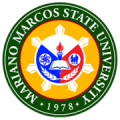MMSU proposes deployment of village-level modularized kits for bio-ethanol production
THE UNIVERSITY’S proposal for the deployment and optimization of village-level modularized kits for bio-ethanol production in three strategic sites in the country was approved in principle by a team of experts from the United States Agency for International Development-Science, Technology, Research, and Innovation for Development (USAID-STRIDE).
The strategic areas – City of Batac, Ilocos Norte; Pamplona, Cagayan; and Mulanay, Quezon province – were identified as rich sources of sweet sorghum juices, nipa extracts, and coconut water, respectively, which are excellent sources of raw materials for hydrous ethanol production.
Proposed by Dr. Shirley C. Agrupis, leader of MMSU’s hydrous ethanol production project, for a CARWIN grant from the USAID-STRIDE, this new undertaking will be jointly implemented by MMSU, Central Luzon State University (CLSU) in Nueva Ecija, USAID-STRIDE, and the Research and Technology Innovation (RTI) which holds office in Makati City.
Led by Dr. Manny Uy, faculty and institutional development manager of STRIDE, the team visited the university on June 30-July 2 to evaluate the proposal and conduct and ocular inspection of the facilities for the production of hydrous ethanol located at the Crops Research Laboratory.
Dr. Agrupis said the three provinces were selected because of their rich supply of the mentioned raw materials for the production, sustainability, and future commercialization of hydrous bio-ethanol in the country.
The modularized kits are composed of a reflux kettle and a condenser which serve as distiller and fermentation facility. These will be used to distill the juice extracts from sweet sorghum and nipa, and the water from coconut which will be processed into 95 percent hydrous bio-ethanol. This technology, which was developed by MMSU, was proven to improve the quality of wine and ethanol.
Dr. Uy said the project is a Nobel approach which may lead the country to become self-sufficient in its supply of bio-ethanol in the near future.
The 200-liter capacity modularized kits will be constructed by mechanical engineers from MMSU and CLSU. The apparatus costs about P100,000.
The three cooperators who will be tapped for the implementation of the project are: engineer Antonio Arcangel of Batac; Crisanta G. Leaño of Brgy. Cabaggan, Pamplona, Cagayan; and Dr. Mariano S. Morales of Mulanay, Quezon Province.
Arcangel is the chairman of the BAPAMIN Farmers’ Cooperative in Batac, Ilocos Norte and owner of a 15-hectare sweet sorghum plantation in Ilocos Norte. He is one of the 69 farmer-scientists of ILAARDEC, a consortium of 18 government agencies in Region 1 involved in agricultural research and extension whose headquarters is located in the main campus of MMSU.
Leaño, on the other hand, is the barangay captain of Cabaggan and chairman of the Nipa Wine Making Cooperative (NWMC) in Pamplona. Until recently, she and the other wine makers in Cabaggan were using the traditional fermentation methods that they inherited from past generations. “With the introduction of the improved fermentation and distillation technology of the MMSU Bio-ethanol Team, we hope to accelerate our business from just a mere nipa wine making to a high grade bio-ethanol production,” she beams.
Moreover, Morales is a medical practitioner and president of the Southern Bondoc Peninsula Producers’ Cooperative (SBPPC) in Poblacion 3, Mulanay, Quezon Province. The cooperative is producing high quality copra for local and foreign markets. He supports the project to utilize the coconut water which is usually disregarded as waste material in the production of copra. “This project will be of great help to us in solving the problem of disposing coconut water which usually undergoes aerobic fermentation elsewhere and poses environmental hazard,” Morales said.
In Ilocos Norte, there are about 30 hectares planted with sweet sorghum located in five composite areas in Batac, Vintar, Pinili, Dingras, and Paoay. Batac has the largest area which is about 15 hectares.
Backgrounder
The university has been producing hydrous bio-ethanol from sweet sorghum jaggery since 2008 with the help of Dr. Fiorello B. Abenes, one of the Philippines’ premier DOST balik-scientists who was deployed at MMSU. He is professor emeritus of animal and veterinary sciences at the California Polytechnic University, in Pomona.
Abenes, together with a team of experts from MMSU composed of Dr. Agrupis, Dr. Roque A. Ulep, Magdalena Valencia, and Ma. Concepcion Birginias, developed a bioethanol mixture or formulation dubbed as hBE-20 or hydrous bioethanol (95 percent ETOH) from fermentations of sweet sorghum and sugar cane juices. The new biofuel mixture promises to be more sustainable in the future compared to other feedstocks being used to produce bioethanol and biodiesel.
Hydrous ethanol product was used to formulate a gasohol (a petrol substitute consisting of 90 percent petrol and 10 percent grain alcohol from crops) mixture consisting of 20 percent ethanol, 79.41 percent anhydrous (ethyl alcohol that has a purity of at least 99 percent) E-10, and 0.59 percent water.
The resulting mixture is the MMSU hBE-20 formulation. The researchers tested the blend for absence of phase separation under ambient and refrigerates conditions. Dr. Abenes' team composed of undergraduate students from MMSU conducted trials to run a four-stroke stationary engine, four-stroke motorcycles, and a Toyota FX (which the team also used to drive from Batac, Ilocos Norte to Quezon City).
Dr. Abenes prides the formulation as stable at ambient and cold temperatures, and showing promise as an engine fuel. According to the members of the team, further testing is being done under more rigorous conditions by the MMSU and the CLSU Engineering Department.
Hydrous ethanol is more economically and environmentally sustainable than anhydrous mixes due to lesser resource utilization. The potential of this technology could save the country P6 billion a year.
Gallery
Dear Valued Client,
We will be introducing our newly upgraded website on October 31, 2024 – offering faster access, improved navigation, and enriched content for students, faculty, partners, and stakeholders. Experience how we cultivate minds and transform futures at MMSU.

 CAFSD
CAFSD CASAT
CASAT CAS
CAS CBEA
CBEA CCIS
CCIS COE
COE CHS
CHS CIT
CIT CTE
CTE COM
COM CVM
CVM Graduate School
Graduate School




